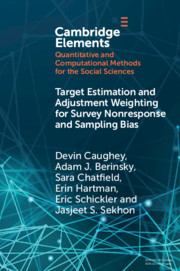Imputing missing values is an important preprocessing step in data analysis, but the literature offers little guidance on how to choose between imputation models. This letter suggests adopting the imputation model that generates a density of imputed values most similar to those of the observed values for an incomplete variable after balancing all other covariates. We recommend stable balancing weights as a practical approach to balance covariates whose distribution is expected to differ if the values are not missing completely at random. After balancing, discrepancy statistics can be used to compare the density of imputed and observed values. We illustrate the application of the suggested approach using simulated and real-world survey data from the American National Election Study, comparing popular imputation approaches including random forests, hot-deck, predictive mean matching, and multivariate normal imputation. An R package implementing the suggested approach accompanies this letter.
